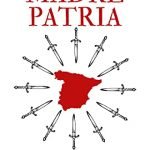Contents
Powell saw similarities between the Spanish Empire and the United States
As if a Tree of Hate fell on him, after the Vietnam War, as happened to the Spanish Empire, he made him write the book.
“Unlike other racial, religious or propagandistic prejudices, this legend is seldom recognized as such, and even less often condemned, by the same intellectual leaders who boast of fighting against similar prejudices of race, color or religion”
It is very difficult to fight against a Black Legend because of the interests that support it and he uses the Spanish Black Legend as an example.
In a shameless way it can be found at the root of the construction of numerous national identities, Holland with the example of its anthem, England, Germany and the United States, in addition to the Spanish-American countries, which needed to justify their independence and their current ills. It highlights how Spanish authors were used as propaganda for this legend. Although Bartolomé de las Casas’s book was a pamphlet full of exaggerations, it was used against Spain. One wants to forget that this very writing helped Spain to enact more just laws for Native Americans in the Valladolid Controversy.
Spain had power for too long and this aroused the fear and envy of European countries and even the United States.
The Spanish Black Legend
“Gratuitously he insults Spain, common sense and historical accuracy”
This has managed to distort the image of an empire that reached unparalleled levels of humanitarianism and civilization. Spain’s cruelty and ambition, which Powell constantly repeats, were on the same level as his European and American contemporaries.
Philip Wayne Powell (United States)
American historian who specialized in the history of the Spanish Viceroyalties, especially of the Southwest of the United States.
His books stand out and are known: Soldiers, Indians, and Silver: The Northward Advance of New Spain, 1550-1600 and Mexico’s Miguel Caldera: The Taming of America’s First Frontier, 1548-1594.
He was a student of Herbert Eugene Bolton, prestigious, professor, historian and writer on Hispanic subjects, of the History of the United States, with numerous books on Spanish settlements and explorers.
The Book: Tree of Hate
Propaganda and Prejudices Affecting Relations with the Hispanic World
Philip W. Powell
The Black Legend and its consequences in relations between the United States and the Hispanic World
Última actualización el 2021-07-21 / Enlaces de afiliados / Imágenes de la API para Afiliados
First published in the early 1970s, Tree of Hate is Philip Powell’s exploration of “the Black Legend“-
the popular myth that colonial Spain and her military and religious agents were brutal and unrelenting in their conquest of the Americas.
“Powell seeks not merely to trace the origins of what he calls Hispanophobia but to analyze its impact on American education, textbooks, religion, and especially foreign policy. . . . The evidence easily demonstrates that English-speaking scholars and diplomats speak with a biased tongue. . . . Too many critics of Spain, to use Powell’s central theme, have merely erected a ‘Tree of Hate’ out of ignorance or to justify their own prejudices and activities. . . . Powell’s book deserves careful reading.”–



